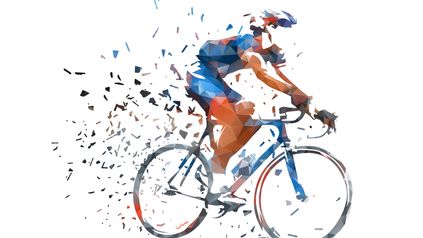The Esports World Cup (EWC), a prestigious multi-title esports event organized by the Esports World Cup Foundation and funded by Saudi Arabia's Public Investment Fund (PIF), recently announced a significant partnership with German sportswear brand Adidas. This collaboration, revealed in October 2023, designates Adidas as the official merchandise sponsor for the event, providing exclusive apparel for players and co-branded shirts for event staff. As the EWC prepares to take place in Riyadh from 4 July to 25 August 2024, this partnership underscores the growing intersection between traditional sports brands and the rapidly expanding esports industry.
Adidas is set to enhance its long-established footprint in the Premier League by becoming the new kit supplier for Aston Villa and Newcastle United from the 2024/25 season. This multi-year contract includes outfitting all men's, women's, and academy teams with match and training apparel. Adidas replaces Castore as Aston Villa's kit partner. The new agreement is reportedly valued at £17 million annually, a significant increase from, what is believed to be, approximately the previous £4 million per season. It is worth noting that whilst these figures have been reported on multiple platforms, the actual figures are often closely guarded and the clubs and sponsors have not officially confirmed the figures to the public.
Additionally, Liverpool is expected to end its current Nike contract, which was reported at £50 million annually, in favour of Adidas starting from the 2025/26 season. This figure may include approximately £30 million from Nike and royalty payments from Liverpool shirt sales. Despite the increased value, this deal does not reach the level of Adidas' reported £90 million per year partnership with Manchester United, which, at approximately £900 million over ten years until 2035, remains the most lucrative in Premier League history.
Legal Implications and Sponsorship Agreements
Sponsorship agreements, such as the one between Adidas and the Esports World Cup, are complex legal contracts that involve numerous considerations. These agreements typically outline the rights and obligations of both parties. Some non-exhaustive examples of key provisions that would typically be considered include the scope of sponsorship, intellectual property rights, financial terms, and termination.
Scope of Sponsorship
In appointing Adidas as the official merchandise sponsor, EWC and Adidas are likely to have spent considerable time negotiating the scope of what this will entail. For example, the EWC press releases state that Adidas will "provide esports athletes with exclusive gear" and that, as well as providing athletes with "premium kits", Adidas will also extend to "the event staff, with EWC crew, ushers, and access control personnel sporting co-branded adidas apparel".
There are a myriad of different considerations when determining the scope of a sponsorship. One of the big questions will be what exclusivity (if any) has Adidas managed to negotiate? If exclusivity has been agreed, what are its parameters?
Another issue is what exposure Adidas gets from its sponsorship. For example, in addition to it providing kit, how can Adidas market its involvement? How prominent will Adidas be at the event? Will EWC do anything to help Adidas market?
Another issue that is often relevant for sponsorships is whether there are tiers of official sponsorship, such as at the upcoming FIFA World Cup where Adidas is one of several official partners. These brands may have different levels of sponsorship to which different rights attach. This might mean that a top-tier official sponsor has different rights from an entry-level official sponsor, like a greater level of exposure at the event.
There are numerous other matters (commercial, operational, and legal) that might fall within the negotiations of the scope of a sponsorship and it is fundamental for both parties to get this right, as it sets out the roadmap for the relationship between them. Naturally, it also has a huge impact on the provisions that need to go into their agreement, and the scope will determine many legal provisions, like the licensing of IP, commercial terms, and when the relationship should end.
Intellectual Property Rights
Both Adidas and the EWC must navigate the use of trade marks, and other intellectual property. These agreements, such as licensing agreements, would typically specify how Adidas can use the EWC's branding in its promotional materials and vice versa, which may also include protections against unauthorised use of each party's intellectual property. For example, official partners with FIFA might opt to utilise the standards rights package, which includes the use of Official Marks, hospitality opportunities, access to broadcasting advertising and promotion across stadiums and official websites.
These agreements may also outline the typical obligations of the rights holders, including warranties that it owns or has the exclusive right to license the intellectual property rights and that the sponsor may use them without fear of infringing third party rights. In addition, the Sponsor might also seek protection in the form of an indemnity to cover any costs or losses, suffered by the sponsor, in the event of third-party infringement.
Additionally, there will be several provisions which also deal with the way in which intellectual property rights are used and exploited, as well as limitations of use.
Financial Terms
The financial terms of the sponsorship deal would cover the amount Adidas pays for the sponsorship rights and any performance-based incentives. These terms ensure that both parties understand the financial commitments and potential returns from the partnership.
Whilst the fees stipulated within these agreements often refer to cash, there may be non-cash alternatives depending on the product or service which is being supplied by the sponsor. In addition, payment dates form a key part of the financial terms, including upfront fees and staggered payment provisions. Typically, the rights holder will want as much of the fee to be paid upfront, in order to meet its third-party financial obligations, whereas a sponsor would want to stagger payments, with certain events acting as a catalyst for payment, such as a team making it past a certain point in a given competition.
Termination Clauses
As is the case with many commercial agreements, sponsorship agreements will include conditions under which either party can terminate the contract. This could cover breaches of contract, changes in business conditions, or other unforeseen circumstances. Termination clauses help manage risks and provide a clear exit strategy if the partnership does not meet expectations.
Sponsors may also insist on rights of termination in certain circumstances, such as the broadcasting exposure being too low, following agreed upon metrics of determination, or where certain teams, individuals or groups fail to take part in a given event.
Under English law, termination clauses must comply with the Unfair Contract Terms Act 1977, which ensures that termination provisions are fair and reasonable. Additionally, under the Consumer Rights Act 2015, such clauses must not be deemed unfair or exploitative, particularly if they affect consumers indirectly involved, such as event attendees.
Adidas's Strategic Expansion in Esports
Adidas's partnership with the EWC is not its first foray into the esports sector. The brand previously collaborated with Saudi Arabia's Gamers8 event in July 2023 and partnered with the US-based esports organization 100 Thieves in May 2024 to launch a co-branded merchandise collection. These strategic moves reflect Adidas's intent to strengthen its presence in the esports industry, capitalising on the sector's growing popularity and aligning with its innovative and competitive spirit.
Broader Implications for the Sportswear Industry
Adidas's involvement in esports highlights a broader trend of traditional sports brands entering the digital sports arena. This trend has significant legal and business implications:
- Market Expansion
By entering the esports market, Adidas and similar brands can reach new demographics, particularly younger audiences who are highly engaged in esports. This expansion requires careful market analysis and tailored marketing strategies.
- Brand Positioning
Partnerships with high-profile esports events and organizations allow sportswear brands to position themselves as leaders in both traditional and digital sports. This dual positioning can enhance brand equity and drive sales across multiple product lines.
- Legal Compliance
Engaging in esports requires navigating various legal landscapes, including advertising regulations, sponsorship disclosures, and compliance with esports governing bodies' rules. Brands must ensure their sponsorship agreements and promotional activities comply with relevant laws and regulations.
Conclusion
The partnership between Adidas and the Esports World Cup exemplifies the intricate legal and strategic considerations involved in esports sponsorship. As esports continues to grow, traditional sports brands like Adidas will increasingly find opportunities to expand their market reach and engage with new audiences. These partnerships will necessitate robust legal frameworks to ensure successful and compliant collaborations that benefit all parties involved.


/Passle/57b2e0b63d947408fcc6e4e6/SearchServiceImages/2025-10-21-10-59-00-260-68f76774e76526bbfaa5afe3.jpg)

